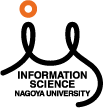Comprehensive List of Researchers "Information Knowledge"
Department of Systems and Social Informatics
- Name
- TODAYAMA, Kazuhisa
- Group
- Philosophy of Information Group
- Title
- Professor
- Degree
- M. of Literature
- Research Field
- Philosophy of science / Science and technology studies / Engineering ethics

Current Research
Philosophical Analysis of Science and Technology
We are conducting the following four research projects using methods taken from the philosophy of science.(1) Philosophy of Mathematics:
Nominalism in Mathematics
Applicability of Mathematics to Empirical Sciences
If we commit ourselves to a materialist world view that claims this world only contains physical objects and properties, we are readily faced with the fact that science is ontologically committed to numerous kinds of non-material abstract beings such as information, numbers, sets, functions, etc. Materialists must explain the ontological and epistemological nature of these abstract objects used in science.
There are two major standpoints concerning this problem: mathematical Platonism, which claims that mathematical objects literally exist, and various kinds of nominalism, which claim that so-called mathematical objects are neither“objects”nor“beings.”Kurt Goedel belongs to the Platonist camp, while David Hilbert belongs to the Nominalist camp, for example.
My central concern is how and to what degree we can defend mathematical nominalism. In other words, what are the grounds for maintaining that electrons exist but not numbers. However, even if it is successfully shown that nominalism is a defendable or at least reasonable position, a nominalist must confront another much harder problem: why are references to such“non-beings”as numbers or functions unbelievably useful for understanding the deep structure of the physical world?
We are tackling these questions with help from the case studies of the“foundation of mathematics”dispute around the turn of the 20th century when many mathematicians led studies and projects with philosophical interests.
(2) Naturalization of Epistemology
Knowledge is not a phenomenon confined to human beings; rather, it is a natural phenomenon we find in non-human animals. From this naturalistic standpoint, we are struggling to say“farewell”to the“taken for granted”basic assumptions of philosophical epistemology that have been too apriorist and foundationalist. By embedding epistemology in natural sciences, we want to rebuild epistemology, because it is currently indulging in excessive concept analysis of the notion“knowledge,”into a sound knowledge science that aims to improve our knowledge-acquiring process. This used to be the main objective of philosophical epistemology, didn't it?
(3) Scientific Realism and the role of models in science
Our final goal is to defend scientific realism, which asserts that the aim of science is to grasp the hidden structure of the world that exists independently of our investigations. Science has already achieved a partial success. However, in the present philosophy of science situation, the odds are against scientific realism. Various antirealist positions have already gained footholds.
We believe that what makes the realist position difficult to defend is an assumption about the nature of scientific theories held by both antirealists and realists. Many philosophers represent a scientific theory as a set of sentences or an axiomatic system. We are presenting an alternative view that puts more stress on the role of“models”in scientific theorizing.
(4) Engineering Ethics and Education
Engineers are specialists who have a responsibility not only to clients or employers but also to the public. What is the ground for this additional responsibility? How should we construct and promote social and pedagogical systems to help fulfill their professional responsibilities? We are tackling these problems from the viewpoint of ethics and STS(Science and technology Studies).

Figure : Author at the entrance of the National Society of Professional Engineers(NSPE),Alexandria VA.
Career
- Kazuhisa Todayama attended Tokyo University (B.A., 1982; M. A. 1985). He was a Lecturer of Nagoya University from 1989 to 1993 and an Associate Professor from 1993 to 2003.Since 2003, he has been a Professor of GSIS, Nagoya University.
Academic Societies
- Philosophy of Science Society
- Japan
- European Association for the Study of Science and Technology
Publications
- The Adventure of Philosophy of Science, NHK Books (in Japanese: 2005).
- Science and Philosophy of the Mind, Showado (in Japanese: 2003).
- Philosophy of Knowledge, Sangyo-Tosho (in Japanese: 2002).








